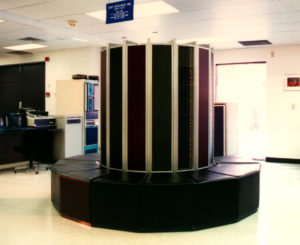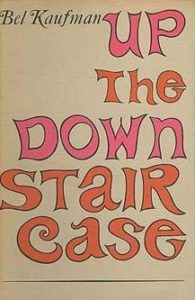 Former Texas Solicitor General Jim Ho and Texas Supreme Court Justice Don Willett have been nominated to the U.S. Court of Appeals for the Fifth Circuit. The Texas Lawbook features a thorough discussion of the nominations, as does the Dallas Morning News. From Louisiana, President Trump has also nominated Stuart Duncan and U.S. District Judge Kurt Engelhardt; The Advocate has a good summary of their backgrounds.
Former Texas Solicitor General Jim Ho and Texas Supreme Court Justice Don Willett have been nominated to the U.S. Court of Appeals for the Fifth Circuit. The Texas Lawbook features a thorough discussion of the nominations, as does the Dallas Morning News. From Louisiana, President Trump has also nominated Stuart Duncan and U.S. District Judge Kurt Engelhardt; The Advocate has a good summary of their backgrounds.
Monthly Archives: September 2017
 In Mainali v. Covington Specialty Ins. Co., the Fifth Circuit addressed “whether a payment made to comply with an appraisal award, which in most if not all cases is going to be paid after the 60-day window [set by the Texas Prompt Payment statute], is subject to [a statutory] penalty.” In an Erie analysis, the Court followed intermediate Texas authority that held such a payment was not subject to those statutory penalties, observing: “Covington was not trying to avoid payment of the claim; it was invoking a contractually agreed to mechanism for assessing the amount it owed.” No. 17-10350 (revised Sept. 27, 2017).
In Mainali v. Covington Specialty Ins. Co., the Fifth Circuit addressed “whether a payment made to comply with an appraisal award, which in most if not all cases is going to be paid after the 60-day window [set by the Texas Prompt Payment statute], is subject to [a statutory] penalty.” In an Erie analysis, the Court followed intermediate Texas authority that held such a payment was not subject to those statutory penalties, observing: “Covington was not trying to avoid payment of the claim; it was invoking a contractually agreed to mechanism for assessing the amount it owed.” No. 17-10350 (revised Sept. 27, 2017).
 TDX Energy v. Chesapeake Operating begins with an entertaining – and accurate – summary of the challenge presented by oil and gas overproduction. Brought forward into today’s market and the parties’ dispute, at issue was a Louisiana statute, under which an operator can forfeit the right to deduct drilling costs on an “unleased oil and gas interest” – defined as one “upon which the operator or producer has no valid oil, gas, or mineral lease. (Here, the relevant interests were leased to TDX but not the operator, Chesapeake.) The Fifth Circuit elected to follow a Lousiana intermediate court opinion that it found to be consistent with the applicable canons of interpretation, and concluded that “The most natural reading of [the two relevant sections together] is that operators forfeit their right to contribution when they fail to send timely reports to lessees with oil and gas interests in lands upon which the operator has no lease . . . .” 857 F.3d 253 (5th Cir. 2017).
TDX Energy v. Chesapeake Operating begins with an entertaining – and accurate – summary of the challenge presented by oil and gas overproduction. Brought forward into today’s market and the parties’ dispute, at issue was a Louisiana statute, under which an operator can forfeit the right to deduct drilling costs on an “unleased oil and gas interest” – defined as one “upon which the operator or producer has no valid oil, gas, or mineral lease. (Here, the relevant interests were leased to TDX but not the operator, Chesapeake.) The Fifth Circuit elected to follow a Lousiana intermediate court opinion that it found to be consistent with the applicable canons of interpretation, and concluded that “The most natural reading of [the two relevant sections together] is that operators forfeit their right to contribution when they fail to send timely reports to lessees with oil and gas interests in lands upon which the operator has no lease . . . .” 857 F.3d 253 (5th Cir. 2017).
 After removing a dispute about a home equity loan foreclosure, Deutsche Bank argued that a state court order that had vacated an earlier order allowing the foreclosure was invalid. The homeowner argued that review was precluded by the Rooker-Feldman doctrine; the Fifth Circuit disagreed. The doctrine did not apply because (1) the “vacating order” was not final under Texas law, and (2) was void under Texas law because the state court had no authority to enter it under the specific state rules of procedure applicable to foreclosures. Unfortunately for the homeowner, the original order authorizing the foreclosure was not final either, allowing review of the merits and affirmance of summary judgment for the Bank. Burciaga v. Deutsche Bank Nat’l Trust Co., No. 16-40826 (Sept. 18, 2017).
After removing a dispute about a home equity loan foreclosure, Deutsche Bank argued that a state court order that had vacated an earlier order allowing the foreclosure was invalid. The homeowner argued that review was precluded by the Rooker-Feldman doctrine; the Fifth Circuit disagreed. The doctrine did not apply because (1) the “vacating order” was not final under Texas law, and (2) was void under Texas law because the state court had no authority to enter it under the specific state rules of procedure applicable to foreclosures. Unfortunately for the homeowner, the original order authorizing the foreclosure was not final either, allowing review of the merits and affirmance of summary judgment for the Bank. Burciaga v. Deutsche Bank Nat’l Trust Co., No. 16-40826 (Sept. 18, 2017).
 The four-part venue test adopted by the Eastern District of Texas after the Heartland opinion was short-lived, as the Federal Circuit granted mandamus relief in In re Cray, noting: “[O]ur analysis of the case law and statute reveal three general requirements relevant to the inquiry: (1) there must be a physical place in the district; (2) it must be a regular and established place of business; and (3) it must be the place of the defendant.”
The four-part venue test adopted by the Eastern District of Texas after the Heartland opinion was short-lived, as the Federal Circuit granted mandamus relief in In re Cray, noting: “[O]ur analysis of the case law and statute reveal three general requirements relevant to the inquiry: (1) there must be a physical place in the district; (2) it must be a regular and established place of business; and (3) it must be the place of the defendant.”
 Today this blog celebrates its 6th birthday! Thank you for reading. And if you want to help celebrate, consider mixing up some Crabmeat Yvonne, a staple of New Orleans’s great Galatoire’s.
Today this blog celebrates its 6th birthday! Thank you for reading. And if you want to help celebrate, consider mixing up some Crabmeat Yvonne, a staple of New Orleans’s great Galatoire’s.
 The Fifth Circuit affirmed an award of $232,809.92 in costs on an unsuccessful FCA claim, noting: “The district court acknowledged that [Defendant]’s invoices were not detailed but explained that, given nearly three million pages of copies [Defendant] produced for its defense in this case,it would have been impossible for [Defendant] to explain each page’s usefulness.” It also allowed recovery for “costs relating to (1) TIFF image conversion, (2) scanning, (3) formatting electronic documents, and (4) PDF conversion – per [28 U.S.C.] § 1920(4), which allows recovery for ‘exemplification’ and ‘making copies’ of case materials.” In a similar vein, the Court credited the district court’s explanation that the statute “allow[s] a prevailing party to recover the costs of complying with an opposing party’s request to reformat electronic documents or scan hard copies of documents.” United States ex rel King v. Solvay Pharmaceuticals, Inc., No. 160259 (Sept. 12, 2017).
The Fifth Circuit affirmed an award of $232,809.92 in costs on an unsuccessful FCA claim, noting: “The district court acknowledged that [Defendant]’s invoices were not detailed but explained that, given nearly three million pages of copies [Defendant] produced for its defense in this case,it would have been impossible for [Defendant] to explain each page’s usefulness.” It also allowed recovery for “costs relating to (1) TIFF image conversion, (2) scanning, (3) formatting electronic documents, and (4) PDF conversion – per [28 U.S.C.] § 1920(4), which allows recovery for ‘exemplification’ and ‘making copies’ of case materials.” In a similar vein, the Court credited the district court’s explanation that the statute “allow[s] a prevailing party to recover the costs of complying with an opposing party’s request to reformat electronic documents or scan hard copies of documents.” United States ex rel King v. Solvay Pharmaceuticals, Inc., No. 160259 (Sept. 12, 2017).
 The parties in IQ Products Co. v. WD-40 Co.disputed whether an arbitration agreement was limited to “propane/butane-propelled produicts” or also “carbon dioxide-propelled products.” The party who prevailed in the arbitration relied mainly on the parties’ subsequent conduct to justify the broader reading, and the Fifth Circuit agreed (applying California law): “Considering . . . ‘the words used . . . as well as extrinsic evidence of such objective matters and the surrounding circumstances under which the parties negotiated [and] entered into the contract; the object, nature and subject matter of the contract; and the subsequent conduct of the parties . . . WD-40’s assertion is . . . not wholly groundless.” No. 16-20595 (Sept. 13, 2017).
The parties in IQ Products Co. v. WD-40 Co.disputed whether an arbitration agreement was limited to “propane/butane-propelled produicts” or also “carbon dioxide-propelled products.” The party who prevailed in the arbitration relied mainly on the parties’ subsequent conduct to justify the broader reading, and the Fifth Circuit agreed (applying California law): “Considering . . . ‘the words used . . . as well as extrinsic evidence of such objective matters and the surrounding circumstances under which the parties negotiated [and] entered into the contract; the object, nature and subject matter of the contract; and the subsequent conduct of the parties . . . WD-40’s assertion is . . . not wholly groundless.” No. 16-20595 (Sept. 13, 2017).
 The high-profile dispute between Dallas Cowboys star Ezekiel Elliott and the NFL Players’ Association, on the one hand, and the NFL on the other, has reached the Fifth Circuit after the district court’s grant of a preliminary injunction against Elliott’s suspension by the league. The NFL has moved for an interim stay; the successful plaintiffs have responded; and a motions panel of the Court will consider that issue in the week ahead.
The high-profile dispute between Dallas Cowboys star Ezekiel Elliott and the NFL Players’ Association, on the one hand, and the NFL on the other, has reached the Fifth Circuit after the district court’s grant of a preliminary injunction against Elliott’s suspension by the league. The NFL has moved for an interim stay; the successful plaintiffs have responded; and a motions panel of the Court will consider that issue in the week ahead.
 In AMA Discount, Inc. v. Seneca Specialty Ins. Co., the Fifth Circuit rejected an interlocutory appeal on a question of bad faith claims handling under Louisiana insurane law, noting that a potentially conflicting district court decision had recently settled on appeal, and the parties actually disputed the application of law to fact rather than the controlling legal standard. The Court acknowledged that this ruling differed from that of a prior motions panel, but observered that at this stage, the case “has the benefit of full briefing and a completed record.” The Court concluded: “Perhaps an interlocutory certification would ‘materially advance the termination’ of this litigation. If that were the decisive question, of course, there would be few roadblocks to interlocutory appeals of legal issues.” No. 16-31158 (Sept. 11, 2017, unpublished).
In AMA Discount, Inc. v. Seneca Specialty Ins. Co., the Fifth Circuit rejected an interlocutory appeal on a question of bad faith claims handling under Louisiana insurane law, noting that a potentially conflicting district court decision had recently settled on appeal, and the parties actually disputed the application of law to fact rather than the controlling legal standard. The Court acknowledged that this ruling differed from that of a prior motions panel, but observered that at this stage, the case “has the benefit of full briefing and a completed record.” The Court concluded: “Perhaps an interlocutory certification would ‘materially advance the termination’ of this litigation. If that were the decisive question, of course, there would be few roadblocks to interlocutory appeals of legal issues.” No. 16-31158 (Sept. 11, 2017, unpublished).
 The panel majority in Veasey v. Abbott concluded that a stay was warranted during the appeal of an injunction against certain “voter ID” laws, focusing on the likelihood-of-success element of the standard four-part test: “As the State explains, each of the 27 voters identified – whose testimony the plaintiffs used to support their discriminatory-effect claim – can vote without impediment under SB 5. The State has made a strong showing that htis reasonable-impediment procedure remedies plaintiffs’ alleged harm and thus forecloses plaintiffs’ injunctive relief.”
The panel majority in Veasey v. Abbott concluded that a stay was warranted during the appeal of an injunction against certain “voter ID” laws, focusing on the likelihood-of-success element of the standard four-part test: “As the State explains, each of the 27 voters identified – whose testimony the plaintiffs used to support their discriminatory-effect claim – can vote without impediment under SB 5. The State has made a strong showing that htis reasonable-impediment procedure remedies plaintiffs’ alleged harm and thus forecloses plaintiffs’ injunctive relief.”- A dissent disagreed as to the elements of the four-part test, and the overrarching
 concept of “preserving the status quo”: “Neither side would be irreparably harmed by continuing to operate under the same election procedures they have been operating under for more than a year. If a stay is granted at all, then it should be comprehensive. In other words, the correct approach would be to stay both the district court’s order and the new legislation.” No. 17-40884 (Sept. 5, 2017).
concept of “preserving the status quo”: “Neither side would be irreparably harmed by continuing to operate under the same election procedures they have been operating under for more than a year. If a stay is granted at all, then it should be comprehensive. In other words, the correct approach would be to stay both the district court’s order and the new legislation.” No. 17-40884 (Sept. 5, 2017).
 2017 has not been kind to the administrative state, and neither was Burgess v. FDIC, No. 17-60579 (Sept. 7, 2017). An FDIC administrative law judge concluded that Burgess had misused bank property, the FDIC Board adopted those recommendations, and Burgess sought review in the Fifth Circuit. He sought an interim stay based upon his argument that the ALJ was an “inferior Officer” within the meaning of the Constitution’s Appointments Clause, and the Fifth Circuit agreed, citing the Supreme Court’s analysis of a similar position involving the U.S. Tax Court in Freytag v. Commissioner of Internal Revenue, 501 U.S. 868 (1991). In so doing, the Court parted ways with the D.C. Circuit’s analysis in Landry v. FDIC, 204 F.3d 1125 (2000), by concluding that final decision-making authority was not a prerequisite to Officer status. Accordingly, the Court granted the interim stay, finding that Burgess “has established a likelihood of success on the merits of his Appointments Clause challenge.”
2017 has not been kind to the administrative state, and neither was Burgess v. FDIC, No. 17-60579 (Sept. 7, 2017). An FDIC administrative law judge concluded that Burgess had misused bank property, the FDIC Board adopted those recommendations, and Burgess sought review in the Fifth Circuit. He sought an interim stay based upon his argument that the ALJ was an “inferior Officer” within the meaning of the Constitution’s Appointments Clause, and the Fifth Circuit agreed, citing the Supreme Court’s analysis of a similar position involving the U.S. Tax Court in Freytag v. Commissioner of Internal Revenue, 501 U.S. 868 (1991). In so doing, the Court parted ways with the D.C. Circuit’s analysis in Landry v. FDIC, 204 F.3d 1125 (2000), by concluding that final decision-making authority was not a prerequisite to Officer status. Accordingly, the Court granted the interim stay, finding that Burgess “has established a likelihood of success on the merits of his Appointments Clause challenge.”
After last week’s opinion in In re: DuPuy Orthopaedics, the plaintiffs have sought en banc review of a panel majority’s statements about the trial court’s ruling on the key issue of waiver. The petition raises interesting and basic questions about the scope of opinions. (For more on that general topic, check out David Coale & Wendy Couture, Loud Rules, 34 Pepperdine L. Rev. 715 (2007)).
last week’s opinion in In re: DuPuy Orthopaedics, the plaintiffs have sought en banc review of a panel majority’s statements about the trial court’s ruling on the key issue of waiver. The petition raises interesting and basic questions about the scope of opinions. (For more on that general topic, check out David Coale & Wendy Couture, Loud Rules, 34 Pepperdine L. Rev. 715 (2007)).
 Addressing a novel but important question, the Fifth Circuit found in that a state law attachment remedy was available to faciliate an international arbitration about a shipment of pig iron, and that federal courts had removal jurisdiction over the proceedings under the Convention on the Recognition and Enforcement of Foreign Arbital Awards. Stemcor USA v. CIA Siderurgica do Para Cosipar, No. 16-30984 (Sept. 1, 2017).
Addressing a novel but important question, the Fifth Circuit found in that a state law attachment remedy was available to faciliate an international arbitration about a shipment of pig iron, and that federal courts had removal jurisdiction over the proceedings under the Convention on the Recognition and Enforcement of Foreign Arbital Awards. Stemcor USA v. CIA Siderurgica do Para Cosipar, No. 16-30984 (Sept. 1, 2017).
 I am speaking at the Texas State Bar’s “Civil Appellate Practice 101” course on September 6 in Austin about key differences in procedural issues between Texas courts and federal courts in the Fifth Circuit. Here is a copy of the PowerPoint that I am using.
I am speaking at the Texas State Bar’s “Civil Appellate Practice 101” course on September 6 in Austin about key differences in procedural issues between Texas courts and federal courts in the Fifth Circuit. Here is a copy of the PowerPoint that I am using.
 The high-stakes mandamus petition in In re DuPuy Orthopaedics, Inc., No. 17-10812 (Aug. 31, 2017), sought relief from an upcoming set of “bellweather” trials in a massive MDL proceeding about allegedly defective hip implants. After an hour-long oral argument – and despite Hurricane Harvey’s enormous impact on Houston, where all three panelists are based – the panel denied the petition a week after argument in an unusual “split decision.”
The high-stakes mandamus petition in In re DuPuy Orthopaedics, Inc., No. 17-10812 (Aug. 31, 2017), sought relief from an upcoming set of “bellweather” trials in a massive MDL proceeding about allegedly defective hip implants. After an hour-long oral argument – and despite Hurricane Harvey’s enormous impact on Houston, where all three panelists are based – the panel denied the petition a week after argument in an unusual “split decision.”
As to the underlying substantive issue – whether the trials could proceed despite strong arguments about personal jurisdiction – two of the three panelists (Judges Smith and Jones) found that a clear error had been committed. But as to mandamus relief, two of the three panelists (Judges Smith and Costa) concluded that the defendants had an adequate remedy by direct appeal.
The opinion has four implications for mandamus practice in the Fifth Circuit, generally.
First, Judge Costa now has a “track record” about mandamus petitions, and his observations in this case – consistent with his prior experience as a trial judge – suggest he has a restrictive view about its availability.
Second, if there was any doubt that mandamus is essentially limited to forum-selection disputes in the Fifth Circuit, the analysis of “adequate remedy” by the panel majority on that point should eliminate it. The unusual length and expense of the upcoming trial, coupled with its potential impact on settlement discussions for the entire MDL, was seen as the type of litigation expense and “hardship [that] may result from delay” that will not justify a mandamus petition.
Third, by detailing a panel majority’s view that the trial court had erred, the opinion continues a practice of offering something of an “advisory opinion” about the merits, despite declining to issue the writ. Indeed, footnote 4 of the opinion gives several examples of other opinions that have done so; two other recent examples include the opinions in In re: Crystal Power Co., 641 F.3d 82 (5th Cir. 2011) (“We confess puzzlement over why respondents insist on litigating this case in federal court even though . . . any judgment issued by the district court will su ely be reversed . . . . “) and In re: Trinity Industries, No. 14-41067 (Oct. 10, 2014) (“The court is compelled to note, however, that this is a close case.”)
Fourth, the opinion highlights the difference between federal and Texas state mandamus practice, despite the nominally similar tests used by the two court systems. A leading Texas Supreme Court case about the adequacy of appellate remedy observes: “Although this Court has tried to give more concrete direction for determining the availability of mandamus review, rigid rules are necessarily inconsistent with the flexibility that is the remedy’s principal virtue.” In re: Prudential Ins. Co., 148 S.W.3d 124 (Tex. 2004). The DuPuy panel majority has a different view of the point.